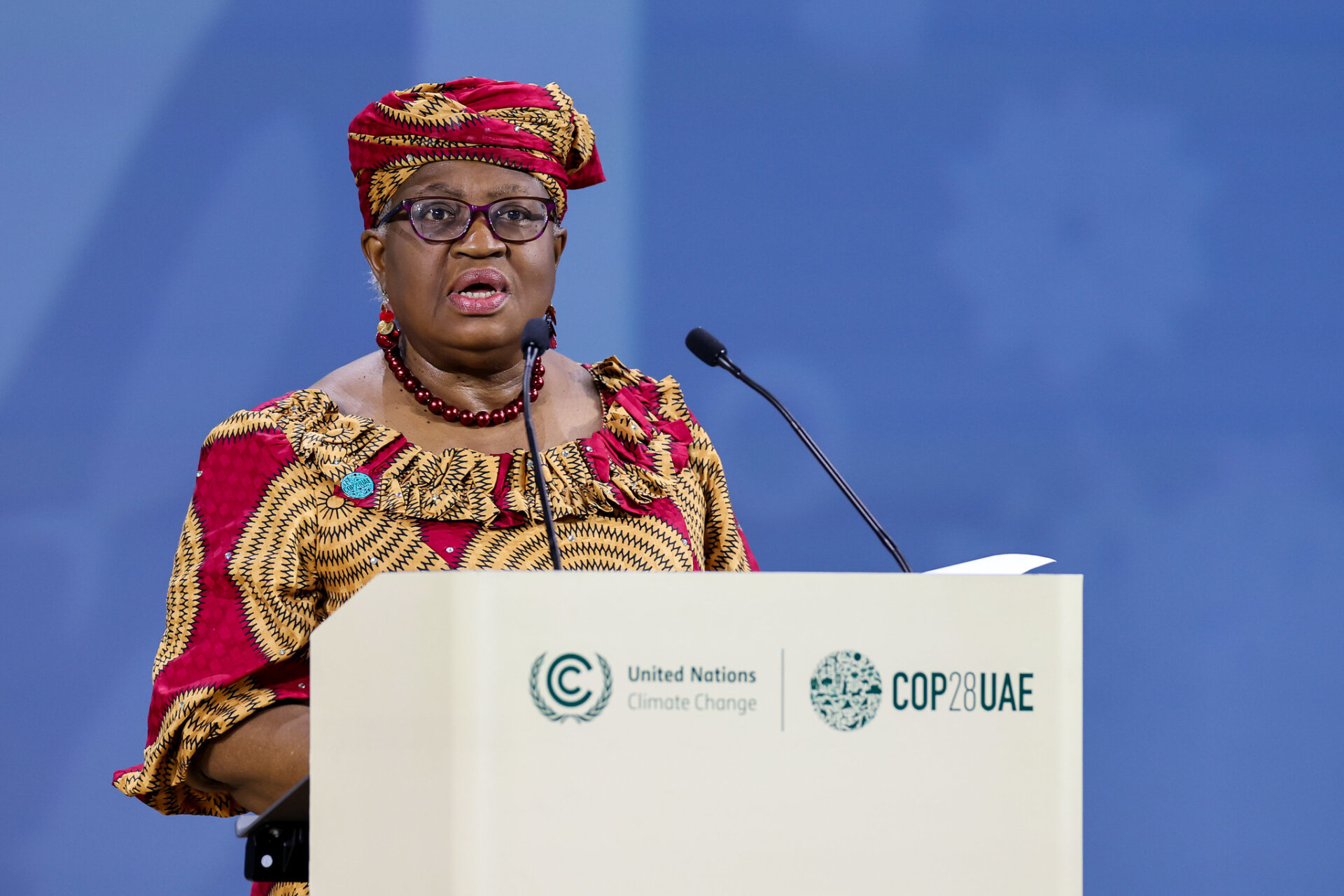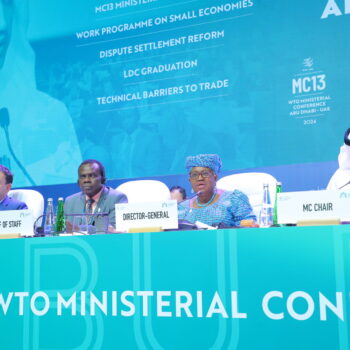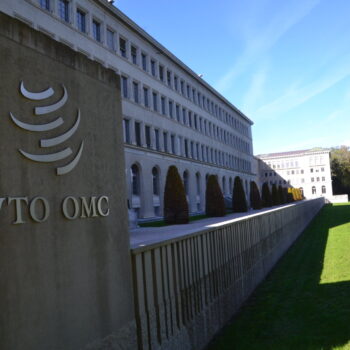Trade was on the agenda for the first time at COP28, reflecting growing recognition of its role in climate action. It was expected to mainly be a “show and tell”, introducing the trade world to the climate one. Instead, rising tensions over unilateral trade measures became a sticking point in the negotiations that will require better anticipation and delicate handling by both the WTO and UNFCCC in the future.
Show and tell
COP28 started strongly on trade. For the first time, the COP28 Presidency hosted a dedicated “trade day”, supported by side events throughout the conference from the World Trade Organization (WTO) and other international trade bodies. The Coalition of Trade Ministers on Climate, launched in January 2023, featured at several events. High-level speakers, including WTO Director-General Ngozi Okonj-Iweala, commended the initiative.
Week one saw launches of:
- The WTO’s ten-point set of “Trade Policy Tools for Climate Action” alongside a joint report with IRENA on the role of trade in developing green hydrogen markets.
- A common set of Steel Standards Principles aimed at aligning methods for measuring greenhouse gas emissions in green steel production.
- The Climate Club, first conceived by the German G7 Presidency, finally launched on 1 December. Trade-related elements in its work programme include a carbon leakage policy and alignment on standards for decarbonising industrial sectors.
- The Net-Zero Export Credit Agencies Alliance, including eight leading export credit agencies. It will promote the decarbonisation of global trade through public and private finance.
Unilateralism as a sticking point
However, as COP28 progressed, heavy disagreement around unilateral measures overshadowed the “show and tell” exercise.
The shift away from multilateral efforts on the part of developed countries, in favor of unilateral action, has led to growing frustrations from developing countries. These came to a head when the BASIC group of large, emerging countries – Brazil, China, India and South Africa – launched a campaign to denounce unilateral measures in the text of the Global Stocktake (GST).
This campaign appeared focused on the EU’s unilateral measures, especially its carbon border adjustment mechanism (CBAM). The CBAM has been criticised for its failure to provide any kind of flexibility or financial support to developing countries or consider the perceived discriminatory burden on their economies. For example, analysts have questioned why the EU is not committing CBAM revenues to support decarbonisation efforts in emerging and developing economies (EMDEs), tying into broader discussions on the lack of climate financing for EMDEs.
The resulting tension culminated in language in the GST outcome recognising that unilateral measures to combat climate change should not constitute a means of arbitrary or unjustifiable discrimination, or a disguised restriction on international trade.
However, a broader debate on where best to discuss the trade and climate nexus, and how to ensure equity for developing countries, was launched and left open.
The WTO and/or the UNFCCC
Questions arose on whether the UNFCCC is a more appropriate forum for assessing unilateral measures. In particular, its principle of Common but Differentiated Responsibilities (CBDR) is more sympathetic to the equity of developing countries than the WTO’s controversial and non-binding Special and Differential Treatment Mechanism.
The EU has consistently stated that its unilateral measures comply with its WTO obligations. EU lead negotiator Jacob Werksman affirmed at COP28 that the WTO was the appropriate forum to discuss trade measures. However, EU director-general for climate Kurt Vandenberghe claimed that CBAM is a climate or environmental tool and “not a trade or protectionist tool at all”, suggesting perhaps that the UNFCCC is the right forum.
This discussion is worth having. The WTO – while having more technical expertise and capacity for these issues – is plagued by a crisis of its consensus-based governance system and a body of rules that insufficiently recognises the legitimacy of climate objectives or the needs and capacities of developing countries. A joint WTO–UNFCCC dialogue on unilateral measures could be the start of a more productive conversation on how to balance climate, trade and equity considerations.
Looking forward
The stage is set for the WTO’s 13th Ministerial Conference (MC13) in Abu Dhabi early next year. The trade ministers will gather for their biennial conference, with trade and climate issues ranging from green subsidies to WTO reform on the agenda. The COP28 experience has stamped a “handle with care” label on the delicate balance between trade, climate and equity – but it remains to be seen if the trade community will heed this warning during MC13. With the added difficulties of a WTO struggling to make any progress toward reform, a political minefield for negotiators should be expected. Navigating it carefully with a view to continuing progress on climate action should be the top priority, and requires the joint efforts of the trade and climate communities.


